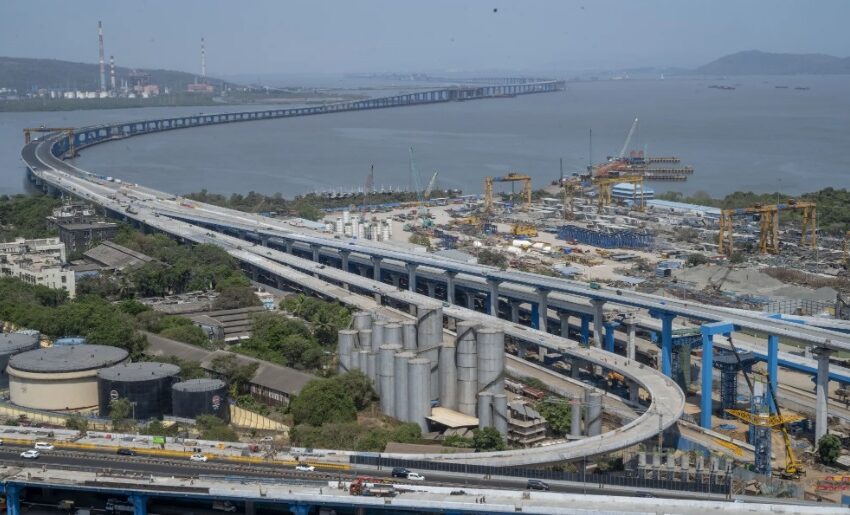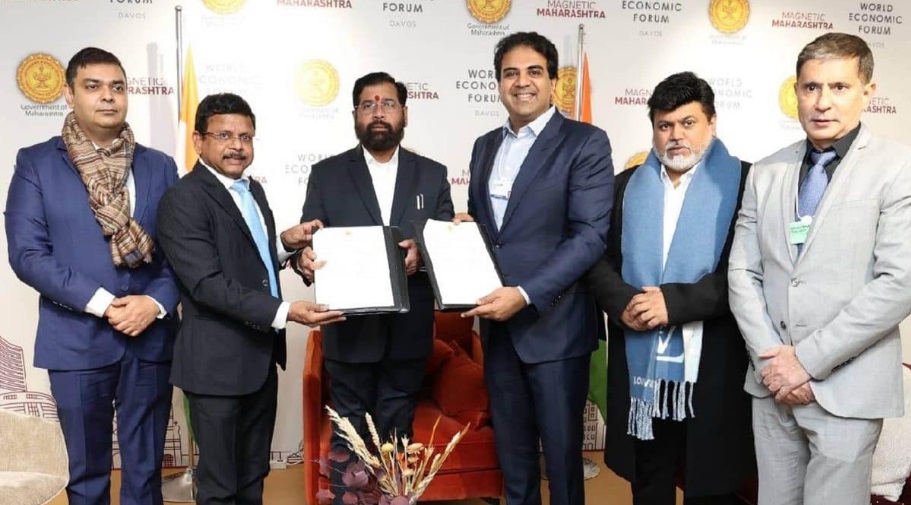
WEF Aims to Transform Mumbai into an Economic Hub on Par with Singapore and Shanghai
The government is focusing on seven services, among them fintech, robotics and AI, health and education, global aviation services and entertainment
MUMBAI: The World Economic Forum (WEF) will help the Maharashtra government in projecting and promoting the Mumbai Metropolitan Region (MMR) as a global economic hub to attract investments and achieve the state’s goal of a $300-billion GDP for the region in the next seven years. A memorandum of understanding (MoU) to this end was signed between the WEF and MMRDA on Thursday.
Klaus Schwab, founder and executive chairman of the WEF, signed the MoU with chief secretary Sujata Saunik in the presence of chief minister Eknath Shinde and deputy chief minister Devendra Fadnavis at Sahyadri Guesthouse.
NITI Aayog, the central government think-tank, has set a target of making MMR a $300-billion economy by FY 2029-30. The joining of hands with the WEF is expected to help the government attract multinational investors to MMR. The government is focusing on seven services: financial services and fintech, new-age services like robotics and artificial intelligence, health and education, global aviation services, media and entertainment, global capability centres and data centres. The economic master plan prepared by the state government has identified global services, affordable housing, tourism, manufacturing and logistics, planned cities, sustainability and inclusivity and urban infrastructure as drivers of the growth.
“The robust infrastructure, connectivity by air, road and sea makes it the ideal region for an economic hub,” said an official from the industries department. “The handholding by the WEF will help us in promoting MMR on global forums.”
MMR, currently a $140-billion economy with a per capita income of ₹4,36,000, had recorded sluggish growth of just 6.1% between 2012 and 2020 and was even less than the national average. It is projected to be one of the world’s foremost economies with a GDP of close to $1.5 trillion by 2047.
The region will, however, have to grow at 9% to 10% to achieve the goal of $300 billion by FY30. If this is achieved, it will help provide employment to an additional 2.8 to 3 million people, including 1 million women. To achieve this, MMR will have to attract an investment of $135 billion in the next seven years according to the report prepared by NITI Aayog.
Chief minister Eknath Shinde said the MoU would help realise Maharashtra’s dream of making MMR a world economic hub. “The GDP of the city and MMR will double in the next seven years,” he said. “The NITI Aayog report has strengthened our goal of making Maharashtra a $1-trillion economy.”

Deputy chief minister Devendra Fadnavis said that Third Mumbai, which the government was developing, had the potential to be a growth engine. “The region has the capacity to house 65% of the country’s data centres and transform the digital economy of the country,” he said. “With the help of the upcoming Vadhavan Port, which will be among the top 10 ports in the world, better air connectivity because of three airports and robust infrastructure, MMR will be an entirely new economic centre. The coastal road is being extended to Virar, and the bullet train, the Virar-Alibaug corridor and the Atal Setu will play a pivotal role in making the region ideal for investment.”
Fadnavis said the development of Mumbai Port Trust as a new township would help in establishing an entirely new Mumbai. “Of the ₹25 lakh crore investment from the private sector that we aspired to, we have already attracted ₹12 lakh crore, and the MMR plan is on the verge of implementation,” he said. “Sixty percent of the things mentioned in the NITI Aayog report are already under implementation.”
Schwab said that he was “very optimistic about the future of Mumbai”. “The speed of its infrastructure development is remarkable, and it is positioning itself well for the intelligent age—where modern technology will be integrated into every aspect of how we work, live, and communicate,” he said. “Mumbai has now firmly established itself as one of the great international cities—on par with Singapore, Shanghai, and London, embodying the best of the business spirit.”
Shiv Sena (UBT) leader Aaditya Thackeray, contradicting the claims, said that a city and region needed world-class infrastructure to become a global economic hub. “Look at the condition of highways in MMR, which connect to other states and cities within Maharashtra,” he said. “We need to improve the condition of those roads first.”
Aaditya added that Mumbai needed an IFC to become a global economic hub. “We demand that the government first set up an IFC in Mumbai, which was taken away by the BJP government to Gujarat 10 years ago,” he said. The Shiv Sena (UBT) leader also accused the Mahayuti government of a politically motivated ‘Raid Raj’ through the Maharashtra Pollution Control Board, and said that such an environment would affect global companies and industry.



